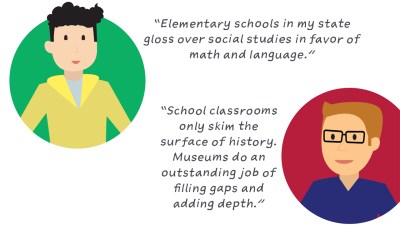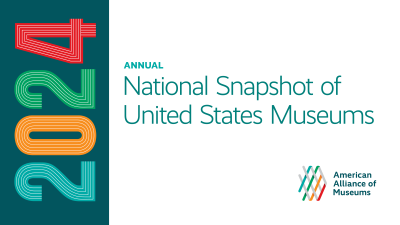
One of the things that fell to the cutting room floor as I edited this year’s TrendsWatch was a short rant about the phrase “quiet quitting.” In the published version of the essay on workplace trends,* I merely noted that “confusingly [the phrase] sometimes refers to ‘checking out’—doing the bare minimum required by a job—and sometimes to a healthy practice of drawing firm boundaries around work, rather than striving to overachieve.”
Though the press has already moved on to the next workplace buzzword (Quiet Hiring, i.e., adding responsibilities to existing staff rather than bring on more people, which is also rant-worthy), I find that I can’t let the original rant go. In fact, as time goes on it has grown in my brain, and a recent chat with colleagues spurred me to write up the extended version to share with you.
Here’s what initially annoyed me “quiet quitting”: not only does the phrase lump together two very different things, it also implicitly stains the one (setting healthy boundaries around work) with the sins of the other (doing less work than one is paid for). Setting healthy boundaries around work is not only reasonable; the fact that we even need to give such an unremarkable action a special name speaks volumes about many of the things that are dysfunctional about American attitudes towards work in general, and nonprofit work in particular. In some for-profit fields—notably tech, start-ups, and restaurants—and in nonprofits generally it increasingly seems that giving anything less than 200% is not acceptable. Does it even need to be said that this is not sustainable? When you add together all the realms we must navigate—work, home, family, community—the total quickly exceeds the time and energy that any one person has to spend.
Endeavors that expect 200% commitment share a compelling narrative. The general gist is, “We are here to serve a greater good, to achieve something great, to pursue a dream,” whether that is in the service of art, science, or the perfect meal. Suffering at work is the price of pursuing that higher cause, and that suffering is heroic. Heroes are willing to risk their own wellbeing, or even their lives if that is necessary to achieve greatness, right? Sometimes that risk comes with the job. Firefighters run into burning buildings, medical professionals treat people with contagious diseases, soldiers go into battle. But I wonder if “hero” has become a toxic platitude, an accolade awarded in lieu of appropriate compensation, and instead of mitigating the risks that people in many professions (notably, during the pandemic, “essential front-line workers”) should not have to take.
And I wonder if, buying into that narrative, we sometimes make our own jobs out to be more heroic than they inherently are. Piling on suffering in effect supports the case that the work we do is important, even essential. Yes, work done well will require some sacrifices. It’s necessary, on occasion, to get the grant application in the mail by 11:59 pm, or pull an all-nighter to meet a project deadline. But it’s one thing to have a heroic moment and another to expect people to live in that space. Ongoing heroism simply becomes normalized, and sets a new, unsustainable baseline for performance. It creates an atmosphere of cumulative stress that, perversely, can lead the most dedicated employees to burn out or disengage.
Sometimes unrealistic expectations are set by employers (see, for example, quiet hiring, above). Sometimes an employer makes up for lack of other organizational resources (time, money, staff) by asking staff to dredge resources from their own energy and soul. But I think we should be honest that sometimes we write these heroic narratives for ourselves, because we love our work, and are passionate about doing good things, about achieving our personal visions for what can be done. It isn’t necessarily good for individuals, or for their employers, to pursue passion-driven work in a way that creates unsustainable expectations. I can’t count the number of great museum projects I know of that ended when the staff person who was the driving force (impelled by vision, by love, by personal commitment) left. Not just because they were the passion behind the project, or had unique knowledge or abilities, but because they were doing the work of two or three people and therefore literally could not be replaced (at least, not by one new hire).
I’ve written before about the “sacrifice measure”—the tendency of people coming to museum work to accept less money for a job that gives them the opportunity to do what they love. Cumulatively, this contributes to depressed wages in the industry and sets everyone up for disappointment, particularly workers who find the actual work does not align closely enough with their passion, or face the stark reality that their wages aren’t enough to pay the rent.
Falling in love with a job isn’t unique to the museum sector, and neither are doubts about the wisdom of doing so. Disenchanted workers are increasingly pointing out that “your job will never love you back.” (Another formulation: “You can be valued, but you can never be loved by your job.”) I first noticed the trope in 2021, when technologist Emi Nietfeld published an op ed in the New York Times titled “After Working at Google, I’ll Never Let Myself Love a Job Again.” In a searing personal essay, she described how her job at Google was the “defining fact of her life,” with her coworkers being her surrogate family. But when she filed a claim of sexual harassment by a colleague, her managers began acting like…managers, out to protect the company, not as family caring for her wellbeing. Eventually she left and took a job at a firm for which she felt “no emotional attachment.”
By conventional thinking, that’s very sad. It’s dunned into us that the ideal life consists of marrying passion to work. Consider the chestnut “Find a job you love and you will never work a day in your life.” Or Bob Franke singing, “What can you do with your days; But work and hope; Let your dreams bind your work to your play.” But unless you are working for yourself, is marrying passion to work really a healthy situation? At the very least, it seems wise to draw thoughtful boundaries around how that passion may distort the nature of work, impinge on others, and reshape your job into something unsustainably heroic.
Some countries are putting legislative boundaries around work. The French labor code prohibits workers from eating lunch in the workplace. (Implemented in the 19th century as a health measure to protect workers from workplace germs, now it helps maintain a cultural norm of taking a lunch break.) In 2022 Portugal implemented legislation establishing “the right to disconnect,” which bans employers from contacting employees outside regular working hours. We are seeing a few halting efforts in the US as well—last year the California legislature considered a bill that would have capped the full time work week at 32 hours. The bill may eventually pass, as many of the concerns raised during discussion were not philosophical objections to the change, but practical issues regarding the details of implementation.
California aside, it seems unlikely that work-life balance in the US is going to be created by legislation. Creating the healthy workplace of the future may require organizations and individuals, managers and staff, to challenge the insidious valorization of individual heroism, and work together to build sustainable collectives. Perhaps “employee of the month” should go to the parent who leaves at 5 every day to collect their toddler from daycare, the person who is unashamed to take a short nap after lunch every day, or the manager who scales back the scope of a project to fit a human (and humane) set of hours. To the people who listen to their colleagues, value their experiences, and adjust their own expectations accordingly. To all the people who quietly set sustainable boundaries around work, help build an organization where people don’t feel pressured to be heroes and make it possible to pursue our collective missions in the long term.
Something to consider, next time you serve as a sounding board for a colleague, review the workplans of your direct reports, draft a proposal for a new project, or simply decide when to turn off your computer and head home.
*TrendsWatch appears in the current print and digital edition of Museum magazine, available to AAM members, and will be available to all as a free, PDF download at the end of March.
Skip over related stories to continue reading article






Thanks for this, Beth! Just what I needed at this point of my career as I try to recover from decades of Heroine-ism.
This article is spot on. I work hard to create an environment where employees can feel good about working regular hours, using their vacation time, and taking care of their personal lives.
The views and perspectives shared here are so very welcome and necessary.
Thank you for this post! I totally agree. When I told my boss at a large museum that I was pregnant with my first child, the first thing she told me was, “you’re going to have to learn how to say no, and that includes saying no to me.” It was some of the best advice I ever got. I am so grateful to her and her boss (who had a similar commitment to supporting work-life balance) for cultivating an atmosphere where I felt I could take on both parenthood and paid work at the same time. It’s probably why I am still in the museum world 14 years later.
Thank you for this excellent post on such an important topic for the museum field. And for people who may be interested in a long-form examination of the “do what you love” problem in workplaces beyond our sector, I would recommend Miya Tokumitsu’s fine book, Do What You Love: And Other Lies About Success & Happiness (ISBN 978-1941393475).
I wonder if the confusion over the term quiet quieting tracks along generational lines because I don’t find that Gen Z, in particular, nor most millennials to understand the term as anything other than establishing firm boundaries and only doing what is required.
Gen Z and younger millennials don’t seem to be seeing any value in dedicating oneself to a career or an employer in the same way that former generations have. They are not interested in making their work their life. That is going to impact all job sectors, but especially the museum sector (and other “passion” careers) in the coming years. People are going to “nope their way out” of quiet hiring or they are simply not going to pursue jobs that don’t pay sustainable wages. Is the sector prepared for people to have boundaries around their work life?